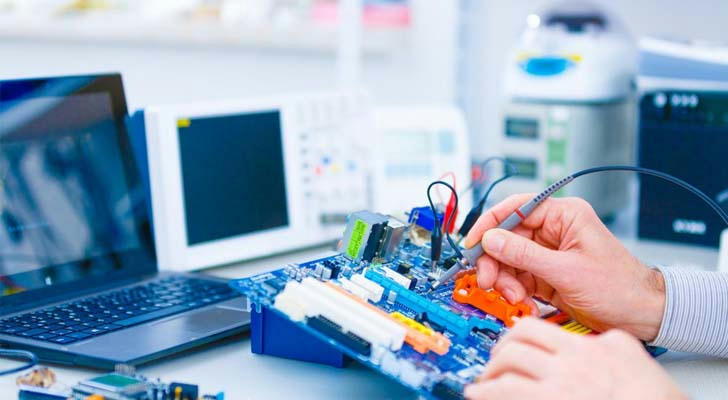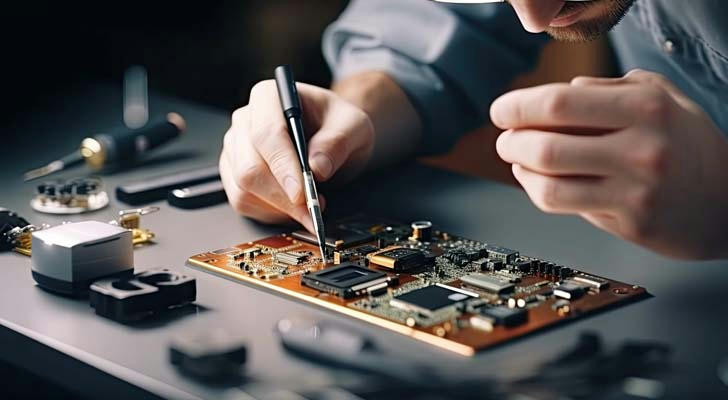Environmental Practices in Repair Services: The Importance of Sustainable Development

As global awareness of environmental issues and sustainable development continues to grow, various industries are searching for ways to minimize their impact on ecosystems. The repair services sector, serving as a crucial link between manufacturing and consumption, plays a vital role in promoting sustainable development. This article will delve into the environmental challenges faced in repair services, analyze the importance of sustainable development, and propose practical solutions aimed at facilitating a green transformation in the industry.
What is Mental Health?
Mental health refers to our emotional, psychological, and social well-being. It affects how we think, feel, and act. Good mental health helps us cope with the stresses of life, work productively, and contribute to our communities. Conversely, poor mental health can lead to issues like anxiety, depression, and other mental health disorders.
What Environmental Challenges Do Repair Services Face?
1. Inadequate Waste Management
The repair process generates a wide variety of waste, including old parts, packaging materials, and hazardous chemicals. Many repair businesses lack effective waste management strategies, leading to improper disposal and ultimately causing soil and water pollution.
2. How Does Resource Waste Impact the Environment?
Numerous repair services fail to fully utilize renewable resources. Under traditional views, faulty equipment is often replaced rather than repaired, leading to significant resource wastage.
3. What Are the Consequences of Using Harmful Materials?
Some cleaning agents and lubricants used in repairs still contain toxic chemicals, posing threats to both the environment and worker health.
4. Why Does the Lack of Energy-Efficient Technologies Create Problems?
Many repair services still use outdated tools and equipment, which are energy-intensive and inefficient, increasing operational costs.
5. What Role Does Consumer Awareness Play?
Society's understanding of repair services remains limited, with many consumers opting for disposable goods instead of repairs. This consumption culture not only exacerbates resource waste but also hinders the environmental potential of repair services.

Why Is Sustainable Development So Important?
Environmental practices in repair services are crucial for achieving sustainable development, primarily for the following reasons:
1. How Can Waste and Pollution Be Reduced?
Through effective repair services, the lifespan of products can be extended, thereby reducing waste generation. For example, repairing and remanufacturing old equipment not only lessens the demand for new products but also diminishes environmental pollution from waste.
2. What Are the Benefits of Resource Conservation?
Repair services facilitate the effective use of resources, lowering the demand for new resource extraction. By focusing on repairs and remanufacturing, the industry can significantly reduce raw material consumption and promote resource recycling.
3. Why Is Enhancing Corporate Image Important?
Implementing eco-friendly measures allows repair services to attract consumers who are environmentally conscious, enhancing their competitiveness in the industry. Increasingly, consumers prefer to support businesses that take social responsibility seriously and focus on sustainable development.
4. How Can Technology Innovation Be Driven?
Environmental practices in repair services can inspire technological innovations and advancements. To meet sustainable development demands, businesses are continually searching for and adopting new technologies to enhance service efficiency and environmental friendliness.
5. What Is the Significance of Raising Consumer Awareness?
Environmental practices in repair services can help consumers appreciate the value of repairs, transforming their perception of disposable consumption and fostering a culture of sustainable consumption.

What Solutions Can the Repair Services Industry Implement?
To address the environmental challenges mentioned above, the repair services industry can adopt the following practical solutions:
1. How Can a Comprehensive Waste Management System Be Established?
Develop clear policies for waste classification, recycling, and disposal, and provide regular training to employees to enhance waste management awareness.
2. What Specific Measures Can Promote the Use of Renewable Resources?
Encourage repair services to utilize renewable materials and remanufactured parts, reducing the demand for new resources and establishing a recycling-oriented supply chain with suppliers.
3. What Factors Should Be Considered When Choosing Eco-Friendly Materials?
Prioritize the use of low-toxicity, non-harmful materials and products during repairs, regularly assess existing products, and seek eco-friendly alternatives.
4. Why Is Investment in Energy-Efficient Technologies Necessary?
Update outdated tools and equipment to incorporate efficient, energy-saving technologies that reduce energy consumption and operational costs.
5. How Can Consumer Education Be Strengthened?
Launch community outreach campaigns to help consumers recognize the value of repairs and the importance of environmental sustainability, encouraging more people to opt for repair over replacement.

What Successful Comprehensive Cases Exist in This Industry?
A notable example is a well-known electronics repair company that has made significant strides in promoting environmental practices. By establishing a comprehensive waste management system, the company effectively classifies and recycles old parts and packaging materials generated during repairs. This not only reduces waste generation but also facilitates resource reuse. Moreover, the company actively collaborates with suppliers to source renewable materials and low-toxicity eco-friendly products, decreasing reliance on hazardous chemicals.
In terms of technological innovation, the company has invested in advanced energy-saving equipment, significantly lowering energy consumption and enhancing service efficiency. Perhaps most importantly, through partnerships with community organizations, the company has successfully conducted awareness campaigns that educate consumers on the value of repairs, shifting their perceptions and encouraging them to appreciate the importance of environmental sustainability.
The company’s success not only enhances its market competitiveness but also sets a positive example for the industry, promoting a broader shift towards sustainable development in repair services.
How Can We Promote Environmental Practices in Repair Services?
Environmental practices within repair services have profound implications for sustainable development. By addressing issues related to inadequate waste management, resource waste, the use of harmful materials, the lack of energy-efficient technologies, and low consumer awareness, the repair services industry can play a pivotal role in advancing sustainable development. Repairing items is not just a service; it is a responsibility. Through these efforts, we can protect the environment and create a better quality of life for future generations. Let us work together to integrate eco-friendly practices into every facet of repair services to achieve a greener and more sustainable future.
